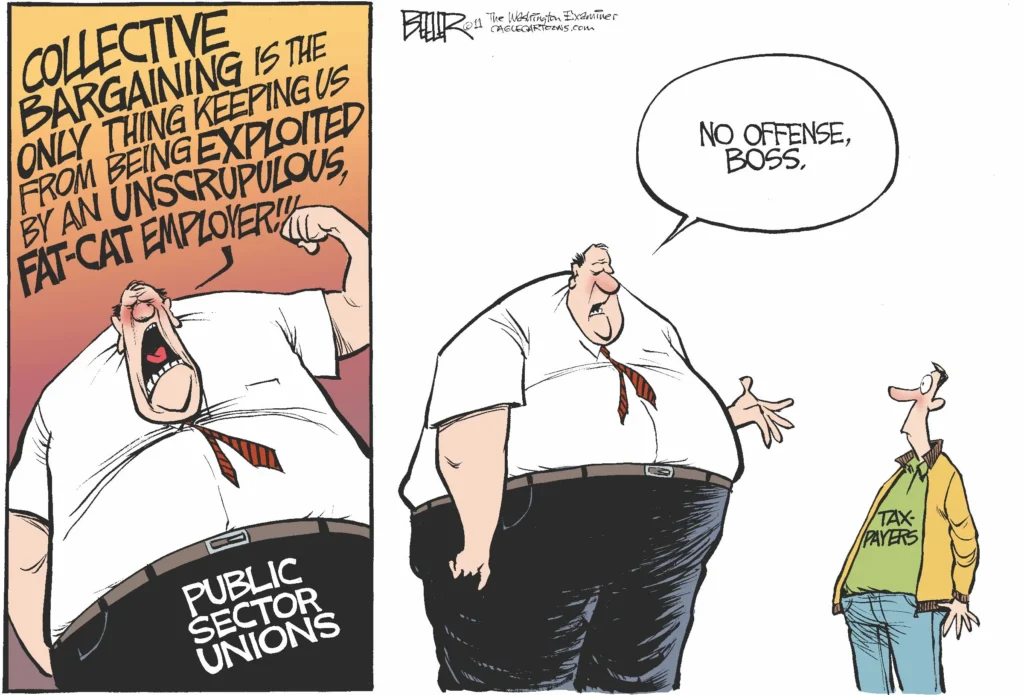
Government cannot use union contracts with its employees to nullify its basic obligations to the public, a federal appeals court ruled last week in a case about the Connecticut state police union contract.

The contract has allowed troopers to prevent disclosure of misconduct accusations against them, thereby facilitating the state police department’s own concealment of misconduct on the job generally. But two years ago the murder of George Floyd by police in Minneapolis called critical attention to police misconduct, prompting Connecticut’s Black state legislators to break free of the General Assembly’s usual subservience to the state employee unions, the mercenaries of the state’s Democratic Party.
Thanks to the Black legislators, a law was enacted to nullify the misconduct concealment provision in the state police contract and restore the public’s right of access to misconduct complaints. Whereupon the troopers union sued, and plausibly so, since the U.S. Constitution prohibits government from impairing the obligations of contracts.
But the courts also have found that contracts with the government are unenforceable when they impair the public’s rights to basic government functions, and the two federal courts that have considered the Connecticut trooper contract issue have decided that letting contracts supersede the public’s right-to-know law so misconduct can be concealed indeed goes too far.
The court decisions may be arguable law but their policy result is welcome. For the misconduct concealment provision in the state police contract is grotesquely subversive of democracy.
After all, laws ordinarily are made after deliberation in public that involves the public at hearings and conversations with legislators. But state government’s labor contracts are negotiated in secret by the governor’s aides and submitted for the legislature’s approval on an all-or-nothing basis, and sometimes the contracts take effect automatically, without the legislature’s approval and without any public deliberation by the legislature at all.
Of course that is exactly how the government employee unions like it. For the unions, the less that is known about what they are extracting from the government, the better. The unions want the public kept ignorant.
The two court decisions don’t fully resolve the troopers union’s lawsuit. While the union may keep pressing the case, even if it continues, the new law nullifying the misconduct concealment provision should discourage the state administration from agreeing to future contracts with similar provisions.
But amazingly state law still allows Connecticut’s government employee union contracts to supersede and nullify the right-to-know law in other respects. So the federal court decisions in the trooper union case suggest that other union contracts with concealment provisions might be fairly challenged in court by advocates of accountability.
The situation shouldn’t have to get so complicated. Accountability in government is basic and there should be no obstructions to it. Connecticut’s law letting union contracts trump the right-to-know law should be repealed and the unions should be reminded that they work for the public and not the other way around.
Unfortunately the public’s control over its own institutions is about to be curtailed again in Connecticut and throughout the country because of a loophole in federal military law.
While federal law prohibits unionizing by federal military personnel on active duty, the prohibition doesn’t apply to members of state units of the National Guard that have not been called to federal service. So last month the U.S. Justice Department conceded to a lawsuit brought in Connecticut on behalf of National Guard members seeking to unionize.
This settlement is being construed as an invitation to unionization by National Guard members in every state.
Unionization may devastate the chain of command in state militias. It’s bad enough that police agencies are unionized, impairing civilian authority over officers authorized to use force on behalf of the government.
So Congress should extend to state National Guard units the ban on unionization and Governor Lamont and the General Assembly should enact such a prohibition for Connecticut.
![]()

